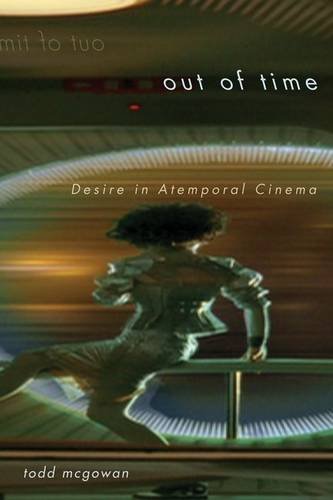

Most ebook files are in PDF format, so you can easily read them using various software such as Foxit Reader or directly on the Google Chrome browser.
Some ebook files are released by publishers in other formats such as .awz, .mobi, .epub, .fb2, etc. You may need to install specific software to read these formats on mobile/PC, such as Calibre.
Please read the tutorial at this link. https://ebooknice.com/page/post?id=faq
We offer FREE conversion to the popular formats you request; however, this may take some time. Therefore, right after payment, please email us, and we will try to provide the service as quickly as possible.
For some exceptional file formats or broken links (if any), please refrain from opening any disputes. Instead, email us first, and we will try to assist within a maximum of 6 hours.
EbookNice Team

Status:
Available0.0
0 reviewsIn Out of Time, Todd McGowan takes as his starting point the emergence of a temporal aesthetic in cinema that arose in response to the digital era. Linking developments in cinema to current debates within philosophy, McGowan claims that films that change the viewer’s relation to time constitute a new cinematic mode: atemporal cinema.
In atemporal cinema, formal distortions of time introduce spectators to an alternative way of experiencing existence in time—or, more exactly, a way of experiencing existence out of time. McGowan draws on contemporary psychoanalysis, particularly Jacques Lacan, to argue that atemporal cinema unfolds according to the logic of the psychoanalytic notion of the drive rather than that of desire, which has conventionally been the guiding concept of psychoanalytic film studies.
Despite their thematic diversity, these films distort chronological time with a shared motivation: to reveal the logic of repetition. Like psychoanalysis, McGowan contends, the atemporal mode locates enjoyment in the embrace of repetition rather than in the search for the new and different.